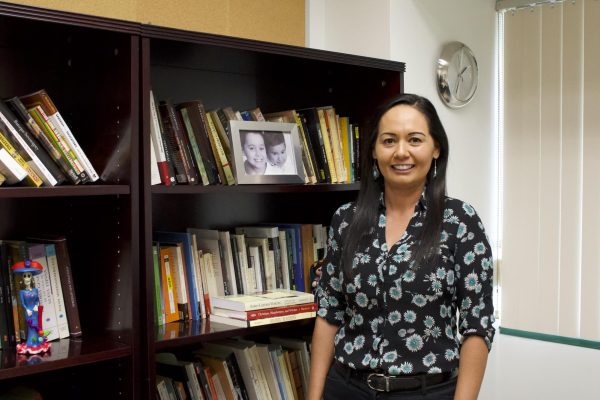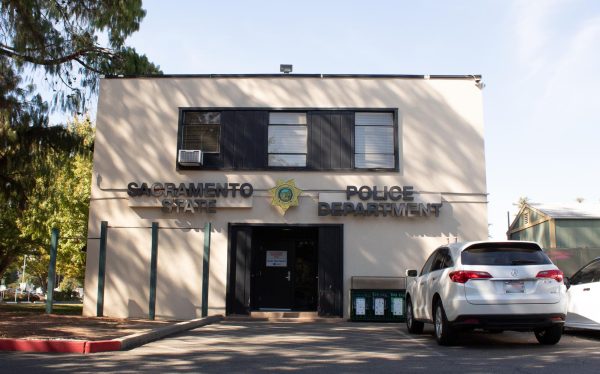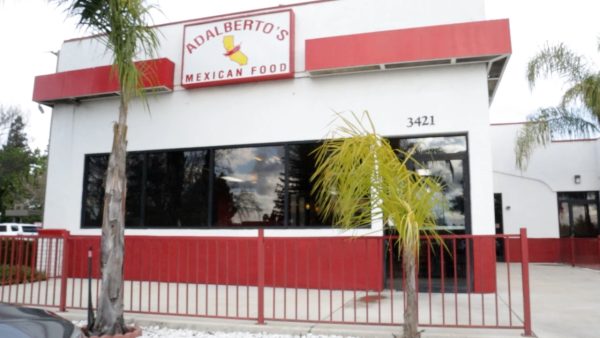Trans graduates need to submit name change request to administration for ceremonies
Move has not been ‘publicly broadcast’ by Commencement office
Nicole Fowler - The State Hornet
Graduating seniors rise at the Spring 2017 commencement exercises held at Golden 1 Center in downtown Sacramento. Students who wish to have their chosen name read and projected on-screen at the ceremony have to inform Cely Smart, the president’s chief communications officer, by April 25 via email.
April 9, 2018
In a move that concerns some LGBTQ members of the Sacramento State campus community, students who want their chosen name read by a professional reader — instead of their legal name — at the May commencement ceremonies will have to send the name they would like used to the president’s office via email by April 25.
The reason why names have to be changed in advance is because the University is using a program called Marching Order, a third-party service for commencement ceremonies, for the first time this year for name announcements.
In a Feb. 20 email obtained by The State Hornet, Cely Smart, who serves as President Robert Nelsen’s chief communications officer, explained that Marching Order “will be populated with the legal name that students have in our systems and students will not be able to change the name.”
Smart asked that administrators “not publicly broadcast this.”
“We recognize that there will be students for whom going by a preferred name is extremely important,” Smart wrote in the email. “Changing 3,000 names because an ‘Elizabeth’ goes by the nickname of ‘Liz’ is not really the intended audience.”
Smart clarified in an April 9 email to The State Hornet that students will be able to change their name to be announced at the ceremony — both spoken and on-screen — at the event, but that students who do so will have a faculty member read the name instead of the professional reader.
Riley Wheeler, a transgender student who plans to graduate in May and is in the process of legally changing their name, said they “had to do my own digging to find out that was a requirement” for the ceremony.
“I was very concerned with what name would be read at the graduation and I was dreading it because I thought my legal name had to be read, so I was trying to figure out a way to change it,” Wheeler said.
Wheeler went through the process of having their legal name superseded by their chosen name — which included sending an email to Smart from their official school email address including their full legal name, full chosen name and student ID before the deadline.
While Smart asked administrators to reach out to transgender students individually and later said she sent an email to students who have “preferred name(s) in (the University’s) system,” Wheeler said they were not contacted by anyone about the procedure.
“I wouldn’t mind having an email sent out,” Wheeler said. “Nobody reached out to me.”
After being asked by The State Hornet if or how the Sac State Pride Center would alert students who may be affected about the name-change process, the center sent out an email Monday to all students who signed up to participate in the Lavender Graduation on May 7, which is a separate ceremony held by the center for graduating LGBTQ students.
As for LGBTQ students who did not sign up for Lavender Graduation, Director of the Centers for Diversity and Inclusion John Johnson said “we don’t know who those would be. We don’t have a roster of LGBTQ students on campus.”
Melanie Saeck, an administrative support coordinator and a member of the LGBTQIA+ Staff and Faculty Group, said the restrictions of Marching Order “pose a problem for a number of students,” especially “students who might be members of culturally or ethnically marginalized groups, and in particular students who are trans.
“It’s much more than a preferred name. It’s a person’s name; I guess you can say chosen name but it’s not a preference when the risk is a person’s dead name being outed or a person being outed.”
Saeck said that while the idea of students being able to contact Smart in advance is good, it is concerning that the solution is not being publicized.
“There’s no official message from the president’s office that is going out to the entire student body,” Saeck said. “They seem to have this fear people will put in silly names. … Other people who have done studies on these areas have found that when there is a ‘preferred name’ option, it isn’t inundated with silly requests.”
In an email to The State Hornet, Smart said that “students need to reach out to the Commencement Office for accommodations for them and their guests, and we are asking that they do the same for name changes this year.”
Smart said the school is “committed to accommodating the needs of students at graduation, and this includes making preferred name changes.
“Additionally, faculty, staff, and other students have been directing graduates to our office to update their names,” Smart said. “We are working with other offices on campus to develop a better process for preferred names across the University before next year’s ceremonies.”
CORRECTION: April 9 at 10:21 p.m. — The original version of this story falsely reported that students who wish to have their chosen name on-screen at graduation must have the name changed by April 25. However, students can have a name written that day appear on-screen, according to Cely Smart, the chief communications officer for President Robert Nelsen. The name will be read by a faculty member, however, instead of a professional name reader.
Additional reporting by Claire Morgan and Robby Sanchez




































































































































